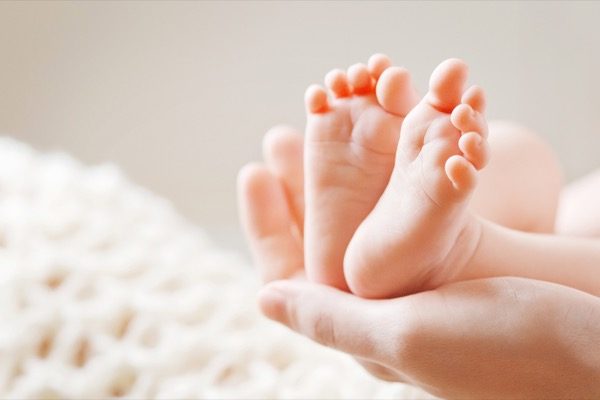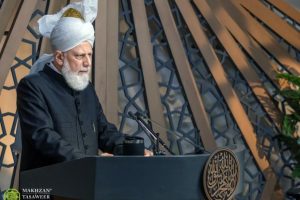
Munavara Ghauri, UK
Recently, an Oxford University study has found that breastfed children are about twice as likely to achieve top GCSE exam grades, the public examinations taken at the age of 16 years in the UK. [1] The positive performance of children in these exams increased in correlation with how long the children had been breastfed by their mothers as babies. For example, in the study of 4,940 children, 10% of the non-breastfed group achieved A* or A in their English GCSEs, whereas this increased to 29% in the pupils that had been breastfed for more than one year. [2] Similarly, the numbers achieving A* or A in Maths GCSEs increased from 11% in those children that were never breastfed to 31% for children breastfed for at least 12 months. Even after other factors were considered, such as socio-economic backgrounds and mothers’ intelligence scores, children breastfed for at least 12 months had a 39% greater chance of achieving A or A* grades in Maths and English. [3] The lead author of the study inferred this was because nutrients in breast milk boost brain development. The study added that ‘Breast milk contains polyunsaturated fatty acids and micronutrients, which enhance neurodevelopment’ [4] and that as breastfeeding can improve mother-child bonding, this can also increase a child’s intelligence.
For Muslim parents, these statistics are of particular interest. That is because the Holy Qur’an acknowledges in two verses that the ‘weaning’ or breastfeeding phase is a lengthy one for mothers. Interestingly, both the verses begin instructing a believer to be good to his parents before elaborating upon the sacrifices a mother makes whilst childbearing and breastfeeding. This suggests that our Creator, God Almighty, acknowledges that neither childbirth nor breastfeeding are easy processes but a sacrifice (albeit willingly), made by a mother. Furthermore, as man is enjoined to be good to both his parents, it suggests that a father’s support enables a mother to bear and nurture her child to the best of her abilities. The verses state:
‘And we have enjoined on man to be good to his parents – his mother bears him in weakness upon weakness, and his weaning takes two years…’ [5]
‘And we have enjoined on man to be good to his parents. His mother bears him with pain, and brings him forth with pain, and the bearing of him and his weaning takes thirty months…’ [6]
Muslims believe the Holy Qur’an to be the direct Word of God that was revealed 1400 years ago to the Prophet Muhammad (sa). As such, they believe it to be an invaluable guide, a unique, inimitable scripture which touches on all aspects of life, from ancient history to biology and psychology. Hence, the Holy Qur’an provides general principles on the human experience. It is interesting that it mentions that the weaning of a child will take ‘two years’ or ‘thirty months’ (this time period includes the 6 months of pregnancy prior to breastfeeding, when the ‘bearing’ or the weight of an unborn child is commonly felt by pregnant mothers), as health experts also recommend that mothers breastfeed for two years. This provides young babies with the maximum health benefits. WHO, the World Health Organisation, which is ‘dedicated to the well-being of all people and guided by science’ [7] advises:
‘Breastmilk provides all the energy and nutrients that the infant needs for the first months of life, and it continues to provide up to half or more of a child’s nutritional needs during the second half of the first year, and up to one third during the second year of life…
Breastfed children perform better on intelligence tests, are less likely to be overweight or obese and less prone to diabetes later in life.’ [8]
Additionally, a research paper by Professor Lord Robert Winston and Dr Chicot also reveals just how much brain development occurs in the first two years of life. Early bonding with a baby which can be assisted by breastfeeding, can help the long-term mental health of a child and develop resilience in him/her.
‘Human babies are born very dependent on their parents. They undergo huge brain development, growth and neuron pruning in the first two years of life. The brain development of infants (as well as their social, emotional and cognitive development) depends on a loving bond or attachment relationship with a primary caregiver, usually a parent. There is increasing evidence…that neglect, parental inconsistency and a lack of love can lead to long-term mental health problems as well as to reduced overall potential and happiness.
…We recommend classes and baby care videos to build practical skills that help mothers to bond with their unborn baby. After birth they can continue this learning through experience – skin-to-skin contact, early breastfeeding, cuddling and carrying the baby.’ [9]
Mothers can bond with their newborn child in multiple ways as suggested above by creating ‘a loving bond’, if breastfeeding is not possible. The Holy Qur’an also recognised the importance of nursing young infants and the need of ‘a primary caregiver’ 1400 years ago. In chapter 65, verse 7, Muslim men are taught that in the unfortunate event of divorce, they must still support their pregnant or nursing wives or arrange adequate arrangements for the feeding of their child. In the early Islamic era when formula milk did not exist, this would have meant employing a ‘wet nurse’ – another lady able to produce milk to feed a child:
‘…And if they give suck to the child for you, give them their due recompense, to be fixed in consultation with one another according to what is customary; but if you meet with difficulty from each other, then let another woman suckle the child for the father.’ [10]
Indeed, the Holy Prophet Muhammad (sa) was nursed by two wet nurses as an infant as was customary in Arabia at that time. It was considered better for the health of a child to be nursed by the women of the rural desert tribes, who lived in healthier climes. So, the Holy Prophet (sa) was first nursed for a few days by Thuweiba (ra) and then Halima (ra), of the Banu Sa’d clan. Subsequently, he was to hold both these foster mothers with great affection and would gift them presents throughout their lives. On one occasion, he and his wife Khadija (ra) gifted Halima (ra) a camel and forty sheep for her tribe after a year of drought. [11]
The benefits of breastfeeding have been pointed out by the World Health Organisation (WHO):
‘Women who breastfeed also have a reduced risk of breast and ovarian cancers.’ [12]
This health benefit was one reason why I personally persevered with the task of breastfeeding my three children. Of course, not all mothers can enjoy a choice when making such a decision and so every woman should be supported to raise her children as best she can. To create ‘a loving bond’ with a child is so vital, as Professor Winston and Dr Chicot state.
However, the advantages of breastfeeding are undeniable and its importance is highlighted in the Holy Qur’an. It suggests an unfathomable wisdom within this scripture that could not have been the sole authorship of the unlettered Arabs of the 6th Century AD. So, in terms of parenting books, the Holy Qur’an is a valuable one and probably one of the earliest!
About the Author: Munavara Ghauri BA (Hons) Eng Lit, is married with 3 children and works as a School Librarian and in a Women’s Refuge. She is currently serving as the Branch Leader for the Bournemouth Women’s Auxiliary Organization of the Ahmadiyya Muslim Community and is an Editor for the Women’s Section of The Review of Religions.
ENDNOTES
[1] https://www.thetimes.co.uk/article/breast-fed-children-pass-gcse-exams-uk-study-2023-jgqcnn67c/ June 6, 2023 ed, p1
[2] ibid
[3] bid, p2
[4] ibid, p2
[5] Holy Qur’an, Ch31-V15
[6] Hoy Qur’an, Ch46-V16
[7] https://www.who.int/about-us
[8] https://www.who.int/health-topics/breastfeeding#tab=tab_1
[9] https://www.ncbi.nlm.nih.gov/pmc/articles/PMC5330336/
[10] Holy Qur’an with Eng Trans & Commentary, Islam International Publications Ltd, 2018 Vol 5, p3174
[11] M Z Khan, Muhammad: Seal of the Prophets, Routledge & Kegan Paul ltd, 1980, pp12-13
[12] ibid




Add Comment